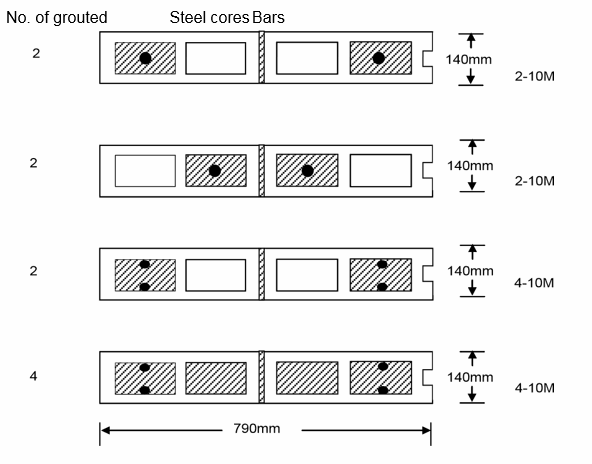- Liu1, J. Dawe2, and G. Aridru3
- Assistant Professor, Dept of Civil Engineering, Dalhousie University, Halifax, NS, B3J 1Z1, yi.liu@dal.ca
- Professor, Dept of Civil Engineering, University of New Brunswick, Fredericton, E3B 5A3, dawe@unb.ca
- Former Graduate Student, Dept of Civil Engineering, University of New Brunswick
ABSTRACT
Strain measurements in 32 concrete block masonry walls tested under various axial loadings have shed some light on the nature of the strain variation through the wall thickness. The strain gradient profile in an eccentrically loaded specimen has been found to change noticeably as the load increases monotonically from zero to ultimate. Typically, the strain gradient is close to linear at low load levels but becomes quadratic or cubic in nature through the thickness as load levels increase. For specimens tested under eccentric compressive loading, ultimate strain and ultimate stress at the extreme compressive fibre, larger than those of concentrically loaded specimens, were observed. A parabolic stress-strain relationship for masonry in compression obtained from tests and the rectangular stress block theory were used to evaluate the strain gradient effect on ultimate load capacities. Experimental findings are presented in tabular and graphical form and their implications for analysis and design are discussed in detail.
KEYWORDS: strain gradient, concrete block masonry wall, eccentric loading, stress-strain relationship, stress-block theory
2b-3



